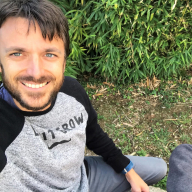
Miguel Lima Medín 🔸
Bio
Participation1
I took 10% pledge in May 2022. First with Giving What We Can, later with Fundación Ayuda Efectiva.
Posts 1
Comments60
I’m also struck by how high the probability of war is, and how comparatively neglected it is in our circles.
Perhaps your circles are more concerned about extinction risks over the next 100 years than about one million deaths occurring in any given year in the short term. Still, it’s quite shocking to consider the high likelihood of a deadly war.
It would be good to have a proposal for responses to 49 and 50, from the charities who studied Animal Welfare metrics. I recognize my ignorance on this topic.
In the second half of 2022, we worked with a group from the Animal Welfare Committee to identify priority metrics for each sector and develop a set of standards that could underpin the proposed label. We have limited the number of metrics to those that are evidence-based and practical to deliver. We will also work with industry to consider how the standards should interact with existing derogations for disease outbreaks if proposals are taken forward.
On your comment about Part A: “it’s not the most relevant to animal welfare”, I think there are some questions which are relevant, such as:
18. If we did not use a list approach, please describe any alternative approaches you would propose to define which minimally processed meat products are included?
All products derived from animals should be included, irrespective of the extent of processing after slaughter. The criteria for labeling should be based on how the animals are treated during their lives, rather than on how much the industry transforms the meat after slaughter.
I don’t see how processing more or less the meat has any influence to the wellbeing of the animals used.
Many thanks Ben Stevenson and jojo_lee for sharing your responses! It was useful for inspiration and to save time.
I add a couple of answers which I think were missing in your lists. Please note my English will probably contain errors as I’m not a native speaker.
23. Should the written origin of food be accompanied by a national flag or other symbol?
There should be a symbol for countries with animal wellfare standards similar or higher than those of the UK, and a symbol for countries with lower standards or no standard at all.
73 Please share any further comments on the monitoring and enforcement proposals.:
Cameras with public streaming should be mandatory on animal factories and slaughterhouses. This would make the conditions more transparent for the consumer, and would reduce the costs of auditing and monitoring by the government as the public can also participate and report non-compliance.
The mandatory requirement for Spanish slaughterhouses to install video surveillance systems can be used as a starting point for legislation in UK.
Have you considered setting up a French foundation that would receive the funds from the donors and then allocate to several programs? There are several experiences in different countries: https://www.givingwhatwecan.org/get-involved/tax-deductibility
I personally donate through Ayuda Efectiva in Spain.
I find this format very useful. The Challenges and Co-founder fit sections help us to understand our personal fit for each one of the charity ideas. The three level summaries let the reader decide how much time she/he wants to spend.
A heads-up: in your Sign up: Charity Entrepreneurship Online Talk (Top ideas 2023) form you list the salt fluoridation program but it is not described in this post. I wonder if this is an error on the form or whether you missed to copy its details into this post.
Other explanation of the investors’ expectations for 2033 is that they have seen the words “peak oil demand” written more and more frequently in the latest reports by IEA and other energy forecasters.
Oil demand can decrease by a combination of economic slowdown and oil intensity improvement. Oil intensity defined as the volume of oil needed to produce a fixed economic output. If we replace oil by other energy sources or increase the efficiency of our energy use we will improve the oil intensity. If we improve the oil intensity fast enough then we won’t see a significant economic impact. I guess the main point of Corentin’s argumet is about the speed of this transition.

From the book "Dialogues on Ethical Vegetarianism.":
While philosopher Cheryl Abbate argues that it’s impermissible to consume sentient animals raised on either factory farms or “humane” farms, she defends ostroveganism, which holds that it’s permissible to eat the flesh of nonsentient animals, such as bivalves. Vegans who oppose the consumption of bivalves are guilty of what she calls “kingdomism” – the view that an animal is entitled to serious moral consideration just because of its membership in the animal kingdom.
David DeGrazia, “Moral Vegetarianism from a Very Broad Basis,” Journal of Moral Philosophy 6 (2009): 143–65.
This was the first time I read the words "kingdomism" and "ostroveganism", altough I already knew several people who made the choice of eating bivalves.
I found the word kingdomism, inspired by speciesism, as a very powerful reminder of the importance of sentience for moral consideration, rather than belonging to a particular species or kingdom. I would love to see a much bigger percentage of the population going ostrovegan, than a limited number of vegans.